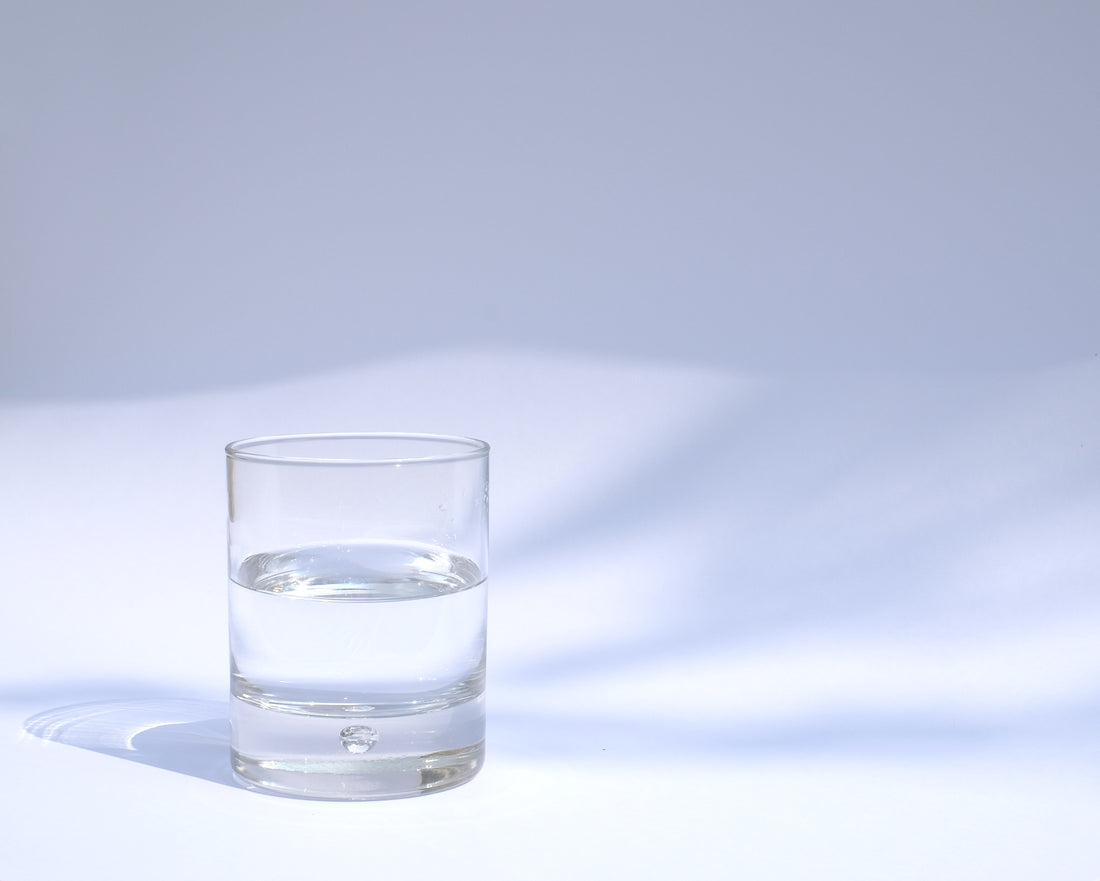In the vast ocean of advice surrounding health and weight loss, water has long been championed as a vital ally. It's no secret that this humble, calorie-free component of our daily lives is a pillar of general health, but when it comes to weight management, the 'how' and 'why' behind water's role can seem a bit murky.
Are you floating on hearsay, or is there substantial evidence beneath the surface that reveals the true impact of water on your wellness journey?
Embarking on a weight loss journey often feels overwhelming, with various 'dos' and 'don'ts' presented at every turn. From intricate diets to rigorous exercise routines, the abundance of strategies makes it clear that there's no one-size-fits-all solution.
However, amidst the complex web of potential weight loss tactics, increasing water intake appears as a recurring, simplistic beacon. But does it really contribute to weight loss, and if so, how?
At Cookie Diet, we believe it's crucial to explore the science behind water consumption and its potential effects on weight management. By understanding the physiological processes involved, we can demystify the role water plays in our body, particularly concerning our metabolic function, appetite regulation, and the concept widely known as 'water weight.'
In this informational read, we'll navigate the currents of scientific insights, wade through essential research, and provide practical hydration tips. Together, we'll uncover how elevating our water intake can contribute to weight management, helping you determine if this simple practice deserves a place in your wellness repertoire.
So, ready to take the plunge? Whether you're a seasoned wellness enthusiast or just starting to dip your toes in the water of a healthier lifestyle, this exploration will offer you new perspectives on an old friend: water.
Unravelling the Basics
When we consider water's presence, accounting for up to 60% of the adult human body, its importance becomes immediately apparent. This isn't just a statistic; it's a testament to how integral water is to our very existence. Beyond quenching our thirst, water plays several crucial roles, each essential to the body's proper functioning and overall health. Let's immerse ourselves in understanding some of these key responsibilities.
Transportation of Nutrients and Oxygen
Water is the body's primary vehicle for transporting nutrients, hormones, and oxygen to cells. It's an essential component of the blood, and by aiding in the circulation process, water helps deliver the necessary elements for cell life and removes waste products. Without an adequate water supply, the body cannot efficiently perform these exchanges, and overall health can decline.
Digestion and Absorption
The digestive system relies on water from start to finish. Saliva, which contains water, is the first step in breaking down food. Water also enables the proper dissolution of nutrients so that they can be absorbed into the bloodstream and transported to the cells. Moreover, it assists in preventing constipation by contributing to bowel function regularity, ensuring waste moves more smoothly through the intestines.
Temperature Regulation
Through the process of perspiration and evaporation, water plays a vital role in helping the body maintain a consistent internal temperature. When we overheat, our bodies release water in the form of sweat. As this moisture evaporates from the skin, it helps dissipate the excess heat and cool us down, which is crucial for maintaining core internal temperature, especially during physical exertion or in hot environments.
Joint Lubrication and Shock Absorption
Water contributes to the lubrication of joints, acting as a shock absorber for the brain and spinal cord while helping to keep our joints moving smoothly and painlessly. By staying well-hydrated, we can support joint health and resilience, potentially reducing the discomfort associated with strenuous exercise and conditions like arthritis.
Detoxification
The body's detoxification system relies on water to flush out toxins and waste. The kidneys are particularly dependent on water to filter impurities from the blood and excrete them in urine, keeping our bodies cleansed and reducing the burden on our internal organs.
Understanding these fundamental roles underscores why proper hydration is paramount for our health and well-being. In the context of weight management, these functions gain additional significance. Efficient digestion, nutrient absorption, detoxification, and even temperature regulation can influence our metabolism's speed and efficiency, our energy levels, and our ability to be active and burn calories.
Water and Appetite Regulation
One of the simplest strategies in the weight management arsenal is harnessing water's potential to enhance the sensation of fullness. The premise seems almost too good to be true: can drinking water before or during meals actually lead to eating less? The answer, anchored in physiology, is fascinatingly positive.
When we consume water before or after our meals, the water takes up space in the stomach. This physical presence of volume in the stomach can contribute to a sensation of fullness, a signal that our body often interprets as a cue to stop eating. Research has shown that individuals may consume fewer calories during a meal if they drink water half an hour before eating. This phenomenon is particularly effective when water consumption is increased before high-calorie meals, effectively reducing the overall calorie intake.
However, while water aids in temporary satiation, it's not a replacement for food. Balancing this method by consuming nutritious meals and staying attuned to the body's hunger signals is essential.
Thirst vs. Hunger
Despite the body's complex network of signals, one surprising glitch in the system is the frequent confusion between thirst and hunger. This misinterpretation is a common hiccup in weight management efforts, leading individuals to consume additional calories when, in reality, a glass of water could have been sufficient.
Dehydration can mask itself and result in what we perceive as hunger pangs. When the body is slightly dehydrated, it can send confusing signals to the brain, leading us to believe we need to eat instead of addressing our actual need for hydration. The hypothalamus, the part of the brain responsible for regulating both hunger and thirst, sometimes mixes these signals, especially when dehydration is mild.
To complicate matters further, food, especially that with high water content, can satisfy thirst. This interplay reinforces the behaviour of reaching for a snack when we should be reaching for water. By recognising this confusion and opting to drink a glass of water when hunger first strikes, we can ensure we're responding to the correct signal. Waiting about 15-20 minutes before opting for food can help determine if it was indeed hunger or a misinterpreted sensation of thirst.
Adopting the habit of drinking water regularly across the day, not just when thirst appears, can prevent this mix-up of signals, keeping hydration levels consistent, and reducing the likelihood of unnecessary calorie consumption due to misinterpreted cues.
Navigating the nuances of thirst and hunger underscores the importance of mindfulness in our health and wellness journeys. By understanding and responding appropriately to our body's signals, we support both our hydration and nutrition needs, optimising our efforts towards effective weight management.
By combining Cookie Diet with the appropriate amount of daily hydration can take your weight-loss goals to the next level. To learn more, feel free to check out our reviews or give one of our specialists a call today!
 Flat Rate Shipping AUS
Flat Rate Shipping AUS 1500+ Five Star Reviews
1500+ Five Star Reviews Pay with Afterpay
Pay with Afterpay Freshly Baked in Australia
Freshly Baked in Australia